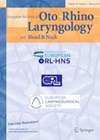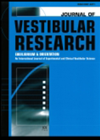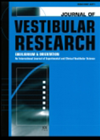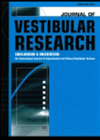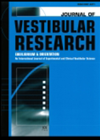
Journal Reviews
Otolith malfunction can be a cause of orthostatic dizziness
This prospective study evaluated otolith function with vestibular evoked myogenic potentials (VEMPs) and subjective visual vertical / horizontal (SVH) tests in 50 adults with normal hearing between the ages of 18 and 50 years. The authors hypothesised that there are...
The vestibular system is not immune to chronic otitis media
It is well recognised that chronic otitis media (COM) is a risk factor for sensorineural hearing loss. Studies on the effect of COM on vestibular function have been beset by design biases. The authors designed a case control study to...
Diagnostic criteria for haemodynamic orthostatic dizziness
Over the past several years, the Bárány Society has been developing an International Classification of Vestibular Disorders (ICVD) in order to standardise diagnosis and nomenclature for both clinical and research purposes. Many in vestibular practice would be familiar with the...
International classification of bilateral vestibulopathy (BVP)
In the past few years the Bárány Society have been standardising the diagnostic criteria for various vestibular disorders – International Classification of Vestibular Disorders (ICVD). Diagnosis of BVP relies on history, bedside clinical assessment and objective vestibular tests. The authors...
Diagnosing persistent postural-perceptual dizziness (PPPD)
The authors, part of an influential committee of experts of the Bárány Society, proposed this consensus document after reviewing 30 years of research on phobic postural vertigo, space-motion discomfort, visual vertigo, and chronic subjective dizziness. They also reviewed interesting historical...
Vestibular paroxysmia, diagnostic controversy clarified?
Historically, the cause of vestibular paroxysmia (VP) had been attributed to neurovascular compression of the eighth cranial despite the observation that such compression is very common in asymptomatic subjects. This paper, part of International Classification of Vestibular Disorders (ICVD) by...
Posturography in persistent postural-perceptual dizziness (PPPD)
Those in neuro-otology practice will be familiar with PPPD now appearing in the forthcoming beta edition of ICD-11. This condition combines the symptoms of phobic postural vertigo and chronic subjective dizziness in which anxiety plays a part. The underlying hypothesis...

